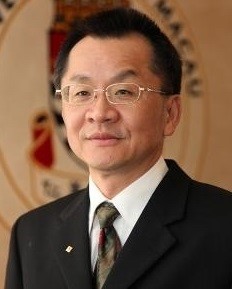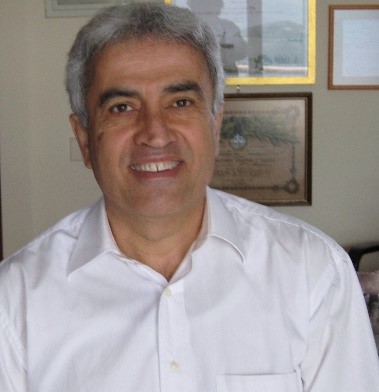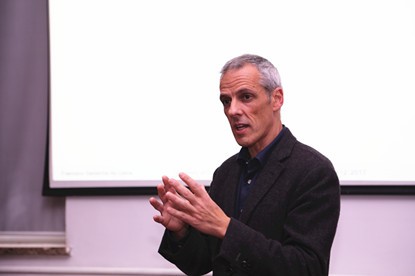1.James M.Tien, Professor, Past President of IEEE SMC, IEEE Fellow, Academician of America National Academy of Engineering, Dean of College of Engineering at the University of Miami, USA
2.C. L. Philip Chen, FIEEE, FAAAS, FIAPR, FCAA, FHKIE, EiC, IEEE Trans. on Systems, Man, and Cybernetics:Systems, Chair Professor, Faculty of Science and Technology, University of Macau, Macau, China
3.Martin Dresner, Professor, Chair of the Logistics, Business and Public Policy Department, R.H. Smith School of Business, University of Maryland, USA
4.Yannis A. Phillis, Professor, Past President of Technical University of Crete, Greece
5.Francisco Saldanha da Gama, Professor, Editor in chief of Computers & Operations Research

James M. Tien
College of Engineering, University of Miami, Coral Gables, Florida 33146, USA
Email: jmtien@miami.edu
James M. Tien received the BEE from Rensselaer Polytechnic Institute (RPI) and the SM, EE and PhD from the Massachusetts Institute of Technology. He has held leadership positions at Bell Telephone Laboratories, at the Rand Corporation, and at Structured Decisions Corporation. He joined the Department of Electrical, Computer and Systems Engineering at RPI in 1977, became Acting Chair of the department, joined a unique interdisciplinary Department of Decision Sciences and Engineering Systems as its founding Chair, and twice served as the Acting Dean of Engineering. In 2007, he was recruited by the University of Miami to be a Distinguished Professor and Dean of its College of Engineering; effective 2016, he stepped down from the Dean’s position and remains a Distinguished Professor. He has been awarded the IEEE Joseph G. Wohl Outstanding Career Award, the IEEE Major Educational Innovation Award, the IEEE Norbert Wiener Award, and the IBM Faculty Award. He is also an elected member of the U. S. National Academy of Engineering.
Title
Convergence To Real-Time Decision Making
Abstract:
The advent of real-time decision making reflects the convergence of a range of digital technologies, including those concerned with the decision making process and the promulgation of artificial intelligence and other decision-related technologies. Central to real-time decision making is the concept of a servgood, which the author introduced in an earlier paper [Tien 2015]; it can be thought of as a physical good or product enveloped by a services-oriented layer that makes the good smarter or more adaptable and customizable for a particular use. Adding another layer of physical sensors could then enhance its smartness and intelligence, especially if it were connected with other servgoods through the Internet of Things, mobile networks, global positioning links, and autonomous systems, all technologies that are considered herein. Such connected servgoods constitute a foundation for the advanced products of the future; they will display their growing smartness through enhanced real-time decision making. Indeed, autonomous systems can be considered to be the exemplar servgoods of tomorrow; it is about decision informatics and embraces the evolving technologies of sensing (i.e., Big Data), processing (i.e., real-time analytics), reacting (i.e., real-time decision making), and learning (i.e., deep neural networks). Since autonomous vehicles constitute a major quality-of-life disruption, it is also critical to consider its policy impact on privacy and security, regulations and standards, and liability and insurance. Finally, just as the Soviet Union initiated the space age on October 4, 1957, with the launch of Sputnik, the first man-made object to orbit the Earth, the United States of America has initiated an age of decision-focused automata – including autonomous vehicles – that can be considered to be the U. S. Sputnik of connected servgoods, with the full support of the U. S. government, the U. S. auto industry, the U. S. electronic industry, and the U.S. enterprise in higher education

C. L. Philip Chen
Email: Philip.Chen@ieee.org
FIEEE, FAAAS, FIAPR, FCAA, FHKIE
EiC, IEEE Trans. on Systems, Man, and Cybernetics: Systems
Chair Professor
Faculty of Science and Technology
University of Macau, Macau, China
Dr. Chen’s research areas are in systems, cybernetics and computational intelligence. He is a Fellow of the IEEE, AAAS, and IAPR. He was the President of IEEE Systems, Man, and Cybernetics Society (SMCS) (2012-2013), where he also has been a distinguished lecturer for many years and received Outstanding Service Awards 4 times. Currently, he is the Editor-in-Chief of IEEE Transactions on Systems, Man, and Cybernetics: Systems (2014-). He has been an Associate Editor of several IEEE Transactions, and currently he is an Associate Editor of IEEE Trans on Fuzzy Systems, IEEE Trans on Cybernetics, and IEEE/CAA Automatica Sinica. He was the Chair of TC 9.1 Economic and Business Systems of IFAC (2015-2017). He is also a Fellow of CAA and Fellow of HKIE and an Academician of International Academy of Systems and Cybernetics Science (IASCYS). In March 2018, he is listed in world top 14 having the most highly cited paper in computer science area by WoS. In addition, he is an ABET (Accreditation Board of Engineering and Technology Education, USA) Program Evaluator for Computer, Electrical, and Software Engineering programs. University of Macau’s Engineering and Computer Science programs receiving HKIE’s accreditation and Washington/Seoul Accord is his utmost contribution in engineering education for Macau as the former Dean. During his deanship, the engineering and computer science programs both have been ranked at world top 200 in the Times Higher Education (THE) world university ranking. The computer science program is also ranked at world top 161 in the US News and World Report global university ranking. Dr. Chen received Outstanding Electrical and Computer Engineering Award in 2016 from his alma mater, Purdue University, West Lafayette, where he received his Ph.D. degree in 1988, after he received his M.S. degree in electrical engineering from the University of Michigan, Ann Arbor, in 1985.
Title
Universal Approximation Capability of Broad Learning System and its Structural Variations.
Abstract:
After a very fast and efficient discriminative Broad Learning System (BLS) that takes advantage of flatted structure and incremental learning has been developed, this talk will discuss mathematical proof of the universal approximation property of BLS. In addition, the framework of several BLS variants with their mathematical modellings are given. The variations include cascade, recurrent, and broad-deep combination that cover existing deep-wide/broad-wide structures. From the experimental results, the BLS and its variations outperforms several exist learning algorithms on regression performance over function approximation, time series prediction, and face recognition databases.

Martin Dresner Professor
Email: mdresner@rhsmith.umd.edu
Martin Dresner is Professor of Logistics and Transportation at the R.H. Smith School of Business, University of Maryland. He received his Ph.D. in Policy Analysis from the University of British Columbia. Dresner has published over 80 papers in refereed journals, with research focusing on two broad areas, air transport economics and supply chain management. Professionally, he is President of the Air Transport Research Society (ATRS) and former president of the Transportation and Public Utilities Group (TPUG) of the Allied Social Sciences Association, and of the Transportation Research Forum (TRF)..
Title
The Impact of Baggage Fees on Passenger Demand, Airfares and Airline Operations in the US.
Abstract:
The talk explores the impact of baggage fees on passenger demand, airfares and airline operations in the United States. Fees for a first or second checked bag were first imposed by American Airlines on US domestic flights in 2008. Other major carriers followed suit, with the exception of Southwest Airlines, which still does not assess fees for (two) checked bags and JetBlue Airways, which only began imposing fees in 2015. Using these holdout carriers for comparison purposes, the analysis shows how demand and pricing have adjusted for the fee-charging and no-fee carriers. Moreover, models are estimated to demonstrate demand shifts among the carriers on competitive routes, and to show how the fees have impacted operational performance.

Yannis A. Phillis Professor
Yannis A. Phillis received his diploma in electrical and mechanical engineering from the National Technical University of Athens, Greece, in 1973 and the M.S., Engineer Degree, and Ph.D. degrees from the University of California, Los Angeles, in control systems in 1978, 1979, and 1980, respectively.
From 1980 to 1986, he was with Boston University, Boston, MA. Since 1986, he has been with the Department of Production Engineering and Management, Technical University of Crete, Chania, Greece where he is professor and director of the CAM Laboratory. In 1992 and between 2005 and 2007 he was visiting professor at UCLA's Chemical Engineering Department. Between September and October 2008, as Onassis Foundation Senior Visiting Fellow in the US, he lectured on environmental issues in four American Universities. His research interests are in stochastic control, discrete-event systems, and applications in manufacturing networks and environmental systems. Dr. Phillis is Book Editor of the Journal of Intelligent and Robotic Systems, Advisory Board Member for the IEEE Systems Journal, Associate Editor for the International Journal of Engineering Management, Member of the Editorial Advisory Board for the Environmental Engineering and Management Journal, and was on the Editorial Board of the Encyclopedia of Life Support Systems, and past Editor of the IEEE Robotics and Automation Magazine. He has also served as Trustee of the Venizelos Research Institute and the Center of Mediterranean Architecture in Greece between 1999 and 2005 .
He is the recipient of numerous honors among which Professor of the Year Award at Boston University in 1986, an award by the Academy of Athens for his environmental activities in 2007, Fellow of the Venizelos Research Institute in Greece, recipient of awards by the Municipalities of Chania and Assini, Greece in 2005 and 2008 respectively for his service to society, and recipient of a "Lifetime Achievement Award", for his contributions to production and environmental systems and leadership in higher education at the World Automation Conference 2010, Kobe, Japan.
He was general chair of the Fifth International Conference on Advances in Communication and Control (1995) and the 3d and 5th International Conference on Management of Technological Change (2003, 2005).
Dr. Phillis was rector of the Technical University of Crete for 10 years until 2005. In 1994 founded and developed the 80-acre Park for the Preservation of Flora and Fauna in Crete. The Park has a laboratory for the study and preservation of endangered plant species, which is also actively involved in ethnobotanical issues. The Park is visited by thousands of people every year.
He has published over 100 scientific papers and four technical books. He is an award winning writer in Greece and the US, having published five poetry collections, three novels, and two environmental books. He is a Fellow of AAAS; a Senior Member of IEEE; and Member of Sigma Xi; Poets and Writers, USA; P.E.N. Club; and the European Art Center, Athens.
Title
How secure are nations in an era of climate change: A quantitative analysis
Abstract:
Anthropogenic climate change is causing many dangerous phenomena such as hot spells, floods, droughts, hurricanes, acidification of oceans, sea level rise, reappearance of old diseases, etc. These phenomena have direct negative effects on national security.
In this talk, climate security is defined and mathematically assessed using a hierarchy of indicators that are combined using statistical methods and multistage fuzzy reasoning. At the bottom level of this hierarchy are 38 indicators and at the highest level is an overall measure of national security. The indicators are organized in seven fundamental dimensions of climate security: Water, Food, Energy, Conflict, Health, and Economy. These dimensions represent basic resources necessary for human well-being and sustainable development that are highly vulnerable to climate change. A sensitivity analysis exposes those indicators that have the highest potential for security improvement for each country.
The signatory countries of the Paris Agreement are ranked according to their climate security index and their most sensitive indicators are pinpointed. In all, about 220,000 data points were used. Several European countries rank at the top while developing countries rank at the bottom, as expected. However, unexpected results are also revealed. Uruguay, for example, ranks higher than Denmark. A careful look at the data, however, reveals that Denmark is exposed to sea level rise because of low elevation and its water situation is rather vulnerable compared to Uruguay. The most sensitive indicators for developed countries are aging population and renewable energy use, whereas for developing countries they are GDP, corruption, poverty, and political rights. Such findings could be a compass for action regarding climate action.

Francisco Saldanha da Gama
Departamento de Estatística e Investigação Operacional
Centro de Matemática, Aplicações Fundamentais e Investigação Operacional
Faculty of Science, University of Lisbon, Portugal
Title
Logistics Network Design and Facility Location: The value of a multi-period stochastic solution
Abstract:
In the past decades Logistics network design has been a very active research field. This is an area where Facility Location and Logistics are strongly intertwined, which is explained by the fact that many researchers working in Logistics address very often location problems as part of the strategic/tactical logistics decisions. Despite all the work done, the economic globalization together with the emergence of new technologies and communication paradigms are posing new challenges when it comes to developing optimization models for supporting decision making in this area. Dealing with time and uncertainty has become unavoidable in many situations.
In this presentation, different modeling aspects related with the inclusion of time and uncertainty in facility location problems are discussed. Emphasis is given to multi-period stochastic programming models. The goal is to better understand problems that are at the core of more comprehensive ones in Logistics Network Design. By considering time explicitly in the models it becomes possible to capture some features of practical relevance that cannot be appropriately captured in a static setting. Additionally, by considering a stochastic modeling framework it is possible to build risk-aware models. Unfortunately, the resulting models are often too large and thus hard to tackle even when using specially tailored procedures. This raises a question: is there a clear gain when considering a more involved model instead of a simplified one (e.g. deterministic or static)? In search for an answer to this question, several measures are discussed that include the value of a multi-period solution and the value of a (multi-stage) stochastic solution. By considering adequate models it is possible to combine the above measures and to quantify the relevance of considering risk in Logistics Network Design.










